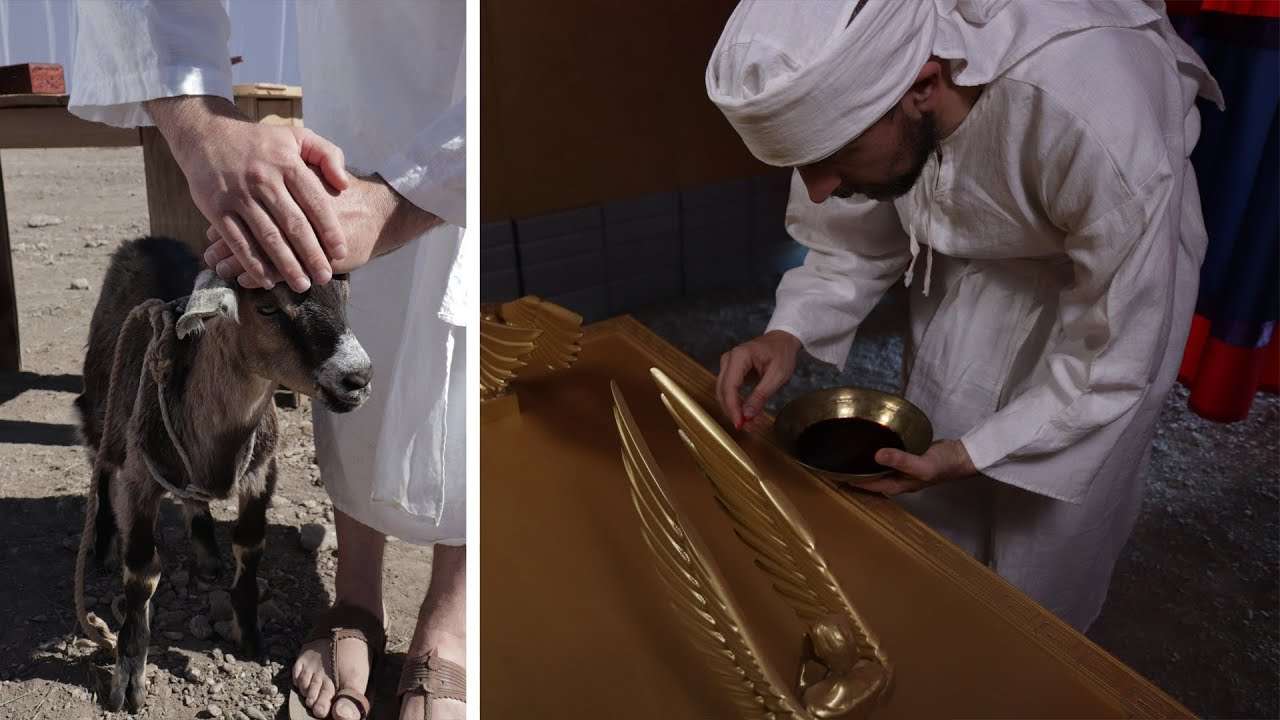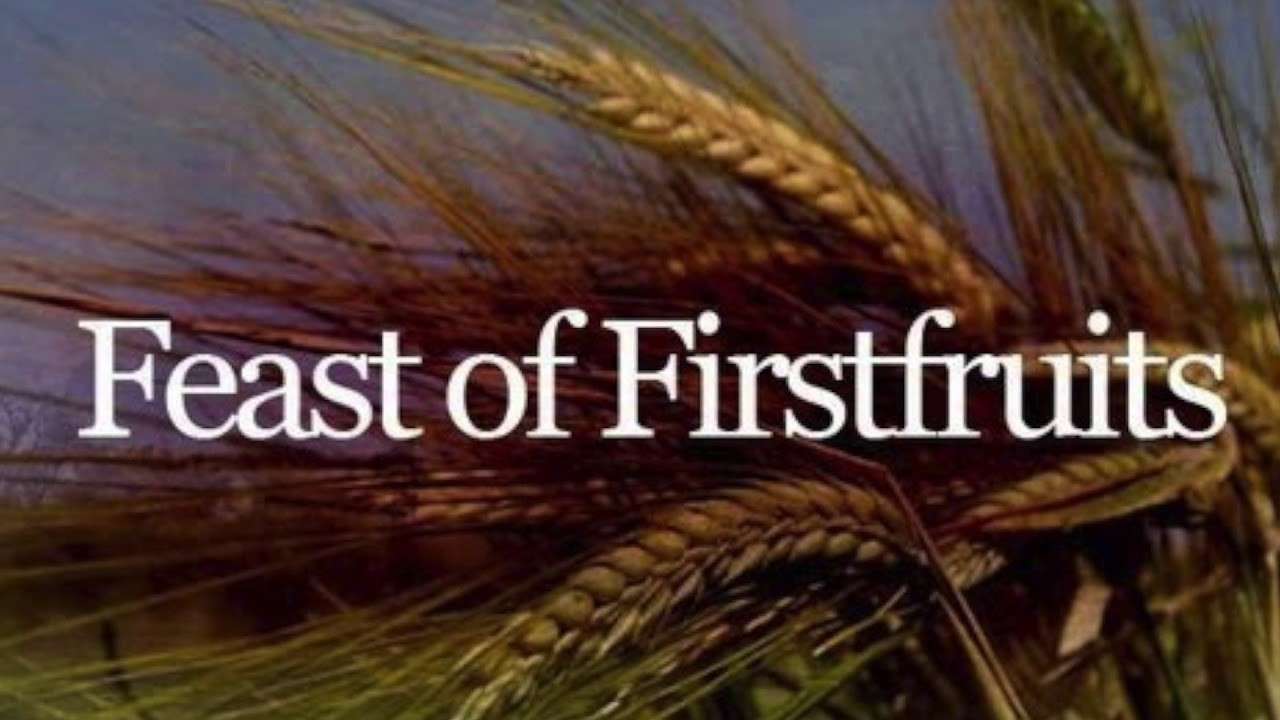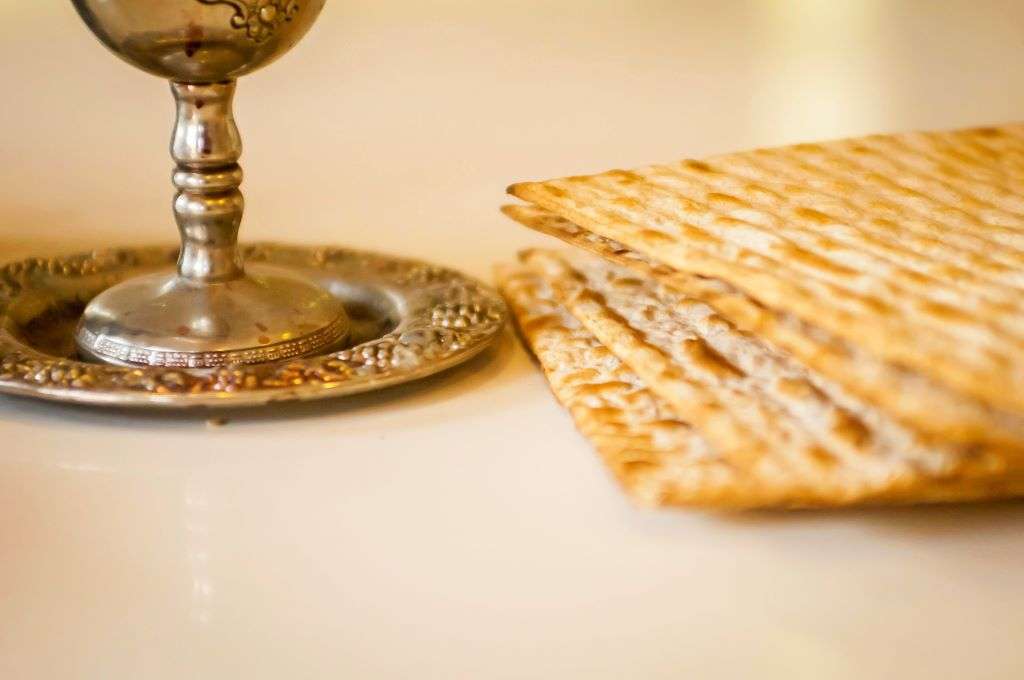
The Day of Atonement
Mr. John Ritchie
“On that day shall the priest make atonement for you, to cleanse you, that ye may be clean from all your sins before the Lord” (Lev.16:30).
“So Christ also having been once offered to bear the sins of many, shall appear a second time, apart from sin, to them that wait for Him unto salvation” (Heb.9:28, R.V.).
“There in righteousness transcendent,
Lo! He doth in Heaven appear;
Shews the Blood of His atonement,
As thy title to be there.”
The Day of Atonement was Israel’s annual cleansing from sin. A full account of all the services of this eventful day will be found in Leviticus 16, as given by Jehovah through Moses to Aaron. Here, in Lev.23, as in the other feasts, it is viewed especially from the Divine side, as a feast of Jehovah, expressive of the joy derived by Him from the atoning death of Christ.
It is worthy of notice, that the day on which the blood was carried within the veil and sprinkled there before and on the mercy seat, was the tenth day of the seventh month. The seventh month had been changed to the first month, at the time of Israel’s deliverance from Egypt. The paschal lamb was henceforth to be chosen from the flock, and set apart from sacrifice on the tenth day of this month. Its death on the fourteenth day was the foundation of all that followed, as we gather from the facts that Feast of Unleavened Bread, the First fruits, and the Feast of Weeks, are all dated from the Passover. The seventh month begins the second half of Israel’s year, and the second series of Jehovah’s set feasts. And here again on the tenth day of that month the blood of a victim is the prominent feature, but not to be used as in the Passover. There, the blood of the lamb was sprinkled on the lintel and side posts of the door, to avert the stroke of judgment on Israel’s first born sons. Here the blood is carried within the veil and put on the mercy seat. In the former case it is the sacrifice of Christ, appropriated by faith, as that which alone can deliver the sinner from righteous wrath, but in this ordinance, it is the blood of atonement presented God ward as that by which His throne is established in righteousness, His claims fully met, the believer permitted to draw near in spirit now to commune with God, and the ground on which he will enter the presence of God in person by and by. The sacrifices of the Day of Atonement were :- 1. A sin offering and a burnt offering for Aaron and his house. 2. Two goats for a sin offering and a ram for a burnt offering for the congregation.
The blood of the sin offering for Aaron and his house was sprinkled on the mercy-seat once, and before it seven times, and over the sprinkled blood a cloud of sweet incense, covered the mercy seat. The word “atonement”–which occurs no less than forty-eight times in the Book of Leviticus alone–means “a covering.” The blood covered the mercy seat, so also did the cloud of incense, and in this we have an exceedingly expressive type of the work and worth of the Lord Jesus Christ, in whose blood the believer is made nigh to God, and in whose Person he stands accepted. The atoning blood covers all his sin. The perfectness of Christ encircles his person. The “house” of Aaron stood in the same acceptance as Aaron himself, and thus “the household of faith,” the priestly house of New Testament times, composed of all true believers (1 Peter 2:5), has access even now into the holiest of all (Heb.10:19), and are made meet to be partakers of the inheritance of the saints in light (Col. 1:12). The blood of the goat for the congregation upon which the Lord’s lot fell, was likewise sprinkled within the veil, and then the sins of the people were confessed by Aaron over, and put upon the head of the scapegoat. It was then sent away into the wilderness. Thus the claims of Jehovah were all met, the priesthood was established, and the congregation cleansed from all their sins before the Lord, and set at rest. The answer to all this, in so far as it applies to the saint of this time, is fully given in the Epistles of the New Testament, where the cleansing (Heb. 10:17-18), the acceptance (Eph.1:6), and the access (Heb.10:19; 4:16) of believers is made fully known. But the aspect of the truth here set forth, has special reference to the future. The Day of Atonement, in its order, comes after the Feast of Trumpets, in its application to the heavenly people will be, the coming of the Lord Jesus as Son of God from heaven; and to the earthly people, His coming as Son of Man to earth. The Feast of Tabernacles, as we shall see presently, looks forward to the millennial reign of Christ. The Day of Atonement comes in between. To what event then does it point? Where are we to find its antitype? Clearly, it must be something after the Advent of the Lord, and before His Kingly reign. Its answer in respect of the heavenly people, is their reception to the immediate presence of God as priests, their establishment around His throne to sing redemption’s song (Rev. chapters 4 & 5), and as the servants of Jesus Christ, in their manifestation before His judgment seat, to have their service reviewed, and their work rewarded
(2 Cor.5:10; Rev.22:12). In that full blaze of heavenly light to which the redeemed shall be introduced in the highest heaven, the immediate dwelling place of God, the value of the blood of Christ will be known by them as it never was before. So also will the exceeding sinfulness of sin, the marvelous grace of God, and the fullness of Christ’s redemption. There, the slain Lamb in the midst will still be the object of their worship, and the theme of their song. The eye of God will rest with ineffable delight on that glorified throng, each member of which stands on the merit of the blood of the Lamb, and encircled with His excellence.
This will be a rich feast of Jehovah, and the saints themselves will share it, each and all.
“God’s eye of flame that searches all,
And finds e’en heaven unclean,
Rests on each soul in full delight,
For not a spot is seen;
Cleansed every whit in Jesus’ blood,
Whate’er its guilt has been.”
The manifestation of the risen saints before the judgment seat of Christ, will be a further answer to this type. At this tribunal, not their salvation, on the acceptance of their persons, but the character of their service will be under review. The hidden motives, the manifestation of the secrets of all hearts will be there shewn in the light of heaven, and to the saints themselves. Then shall they know, even as they are known. The failures of the path, the imperfections of what once seemed so pure and perfect, will be seen as they had never been seen before, and the Master’s estimate of all, will be known. What a change from present estimates of service that hour will bring! How small will that which often bulks in men’s opinions and obtains their praise, appear then! How great those little acts and hidden deeds known only now to Christ and to God.
“Deeds of merit as we thought them,
He will shew us were but sin;
Little acts we had forgotten,
He will own were done for Him.”
But while there will be much to humble the saints at Christ’s judgment seat, there will be nothing to condemn them, for the blood of atonement, the memorial of the ever precious death of the Lamb of God, will speak forth its value, and cover all the sins and failures of the Lord’s redeemed. Then after all has been manifested, the good rewarded the bad burnt up, the saints and servants of God will pass into their places in the kingdom of their Lord, in the perfect enjoyment of rest. And thus the three features of the Day of Atonement–acceptance, humiliations, and rest–will be fulfilled in the risen saints. How all this will enhance the value of the blood of the Lamb! And if, as has been suggested by another, the devil, the accuser of the brethren, will not at this time have been cast from the heavens, as he will be at a later period (Rev.12:10-11), but will seek to accuse the saints before God, on account of the failures of their service as made known at Christ’s Judgment seat, He will be answered in this, His last attempt to dispute their title to heaven, by the atoning death of Christ. As it is written, “they overcame him by the blood of the Lamb”.
The fulfillment of the type in regard to the earthly people is fully and touchingly described in the prophetic Scriptures. Delivered from the allied forces of Antichrist, and his confederate kings, who at that moment will surround the earthly Jerusalem, by the sudden appearance of the Lord on Mount Olivet, they will look up to find that He, who is their great Deliverer, is Jesus of Nazareth, whom they crucified. The wounded hands and feet will bring back to mind and conscience, that hour, when in their hatred of Him, they cried out–“Crucify Him”, and made the awful request–“His blood be upon us, and upon our children”. Now they look on Him, whom they pierced and mourn. And what a mourning that will be, when “the Spirit of grace, and of supplication” is poured out upon them, and their melted hearts are turned to the Lord. Their bitterness and grief passes all description, as they look upon Him whom they had crucified and slain. The deep searchings of heart of Joseph’s brethren, as they remembered their cruelty to him, are but a faint illustration of the anguish of awakened Israel in the latter day, when every household, and individual apart, alone before God will mourn, as one mourneth for an only son, their rejection of the Messiah. But just as when the anguish of Joseph’s brethren was removed, and he in grace revealed himself to them as their kinsman and deliverer, so will the glorified Christ reveal Himself, and His atoning work, to the melted hearts of awakened Israel, and they will turn to find the repose of their souls in the atoning death of the Lamb slain. It will be then, that the language of Isaiah 53 will burst from their lips–“Surely He hath borne our griefs, and carried our sorrows; yet we did esteem Him stricken, smitten of God, and afflicted. But He was wounded for our transgressions; He was bruised for our iniquities.” And in that bruising their healing will be found, for “in that day there shall be a fountain opened to the house of David, and to the inhabitants of Jerusalem, for sin, and for separation and uncleanness” (Zech.13: 1, margin). Not a new sacrifice, but the abiding efficacy of the one Great Sacrifice of Calvary extended to them. Thus humbled, cleansed from sin, and brought to God, they will pass into the millennial kingdom, under the benign rule of the Prince of Peace with His heavenly bride.
“Then thou, beneath the peaceful reign
Of Jesus and His bride,
Shalt sound His grace and glory forth,
To all the earth beside.
The nations to Thy glorious light,
O Zion, yet shall throng;
And all the listening islands wait
To catch the joyful song.
The Name of Jesus yet shall ring
Through earth and heaven above,
And all His ransomed people know
The Sabbath of His love.”


